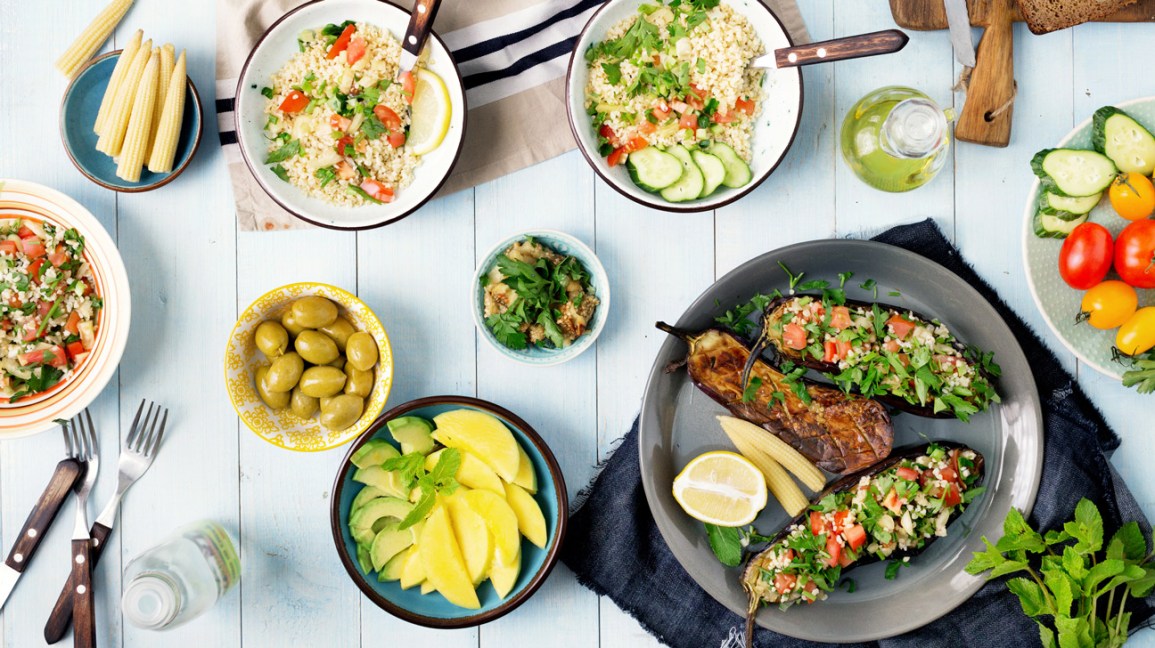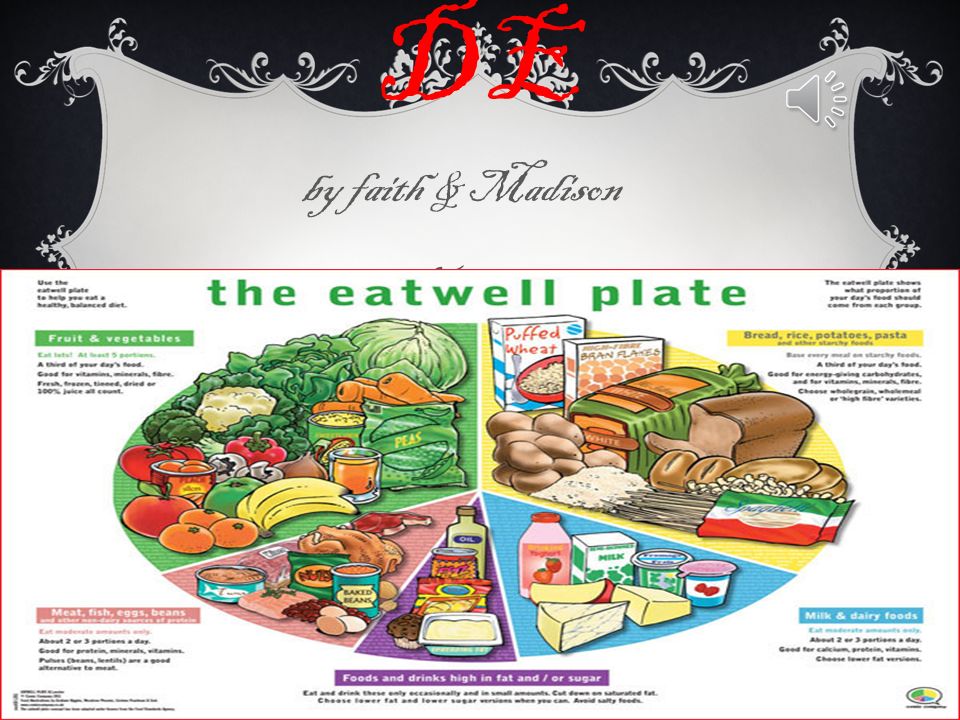
A high-fiber diet with three to five portions of whole grains per meal can help prevent diabetes. Karen Ansel is a registered nutritionist and dietitian in Syosset, New York. She says that those who regularly drink coffee are 54 percent less likely than those who do not. This condition is also prevented by eating foods high levels of lutein, vitamin D, and fiber.
Aside from fiber and vitamins, cruciferous vegetables are high in antioxidants and may help prevent diabetes. The reduced risk of inflammation and heart disease is associated with sulforaphane (a chemical found in spinach). While salmon is rich in omega-3 fats you can also eat other types of fish that are rich in this nutrient. Try trout or albacore tuna as well as herring. For a lower calorie option, bake your fish rather than frying. The American Diabetes Association recommends that you eat fish at least twice a week.

It is good for your health to eat lots of fruits and vegetables. You will be healthier if your diet is high in fruits and vegetables. Eat a variety, including berries and citrus fruits. Red meat and dairy products should be limited if you have diabetes. You can eat more fruits or vegetables. While this is more challenging in the early stages, it will help you control the risk of type 2 diabetes in the long run.
For people with diabetes, yogurt has many health benefits. The dairy product is rich in calcium and high-quality proteins. Plus, yogurt has no added sugar. Probiotics help balance the bacteria in your digestive tract. You can eat yogurt even if you have lactose intolerance, so long as the Greek variety is purchased. This yogurt has less lactose content than its regular counterpart. But, people with lactose intolerance can still eat it.
Legumes are another type that prevents diabetes. These high-fiber and protein foods can help stabilize your blood sugar. They also help reduce your risk of developing type 2 diabetes. And because they are high in protein, you don't have to snack on snacks to keep yourself satisfied. Your diet of legumes is rich in antioxidants that can combat inflammation. These are two major causes of type 2.

Oatmeal has a high fiber content and can reduce appetite before lunch. Studies have shown that people who eat four to five servings of oatmeal a day have a lower risk of developing type 2 diabetes than those who eat less fiber. Fiber also helps regulate blood sugar levels which can help lower the risk of developing diabetes. To prevent the development of type 2 diabetes in the future, eat lots of fiber if you have diabetes.
FAQ
How to Build Muscles Fast
Eating healthy foods and lifting weights regularly is the best way to build muscle fast.
The best time to work out is early morning when you are fresh and ready for action!
You should try exercises such as squats, bench presses, push-ups, etc.
Consider trying different weight training programs and drinking plenty of water throughout each day.
Is it true that overeating protein causes kidney stones?
Protein is essential for healthy bones and tissue. Over-consuming protein can result in calcium being excreted through the kidneys. In turn, this can result in kidney stones.
It is important to remember that not all people get kidney stones from eating more than 2g protein per kilogram (2.2lbs) of body weight. You don't have to eat a lot of protein to get kidney stones.
Watching your sodium intake can help prevent kidney stones. Sodium regulates the body's water balance. High levels of sodium are linked to a greater risk of developing renal stones.
You can also reduce your intake of proteins if you develop kidney stones. Protein provides about half of the daily caloric needs for most adults. Reduce your intake of protein and you will likely lose weight.
If you do decide to eat more protein, don't go overboard. You should aim to consume less than 20% of your total calories from protein.
What food should I avoid if I want to lose weight
Avoid trans fats. Trans fats can raise LDL (the unhealthy) cholesterol levels while lowering HDL levels (the good).
Trans fats may be found in deep-fried, fast food, packaged bake goods, snack cakes, or other processed food.
These unhealthy fats cause inflammation which leads to heart disease, diabetes, and other health problems.
Avoid foods containing artificial sweeteners. Artificial sweeteners are linked to an increased risk of cancer.
They are found in everything, from soft drinks to chewing tobacco to candy bars. They are also found in poultry, eggs, meat and fish.
Artificial sweeteners include saccharin.
The American Heart Association suggests that you avoid these chemicals as they can cause DNA damage in your cells.
How To Lose Belly Fat Fast
There are many methods that can help you reduce your belly fat quickly. One option is to eat less calories and drink more water.
Another way is to increase your metabolism by participating in activities such as running and swimming.
Avoid sitting down if your goal is to lose belly fat quickly. Stand up often throughout the day. This will help reduce calories.
If you have already tried all these methods but still struggle with belly fat, there is another option.
A belt is a device that allows you to do this. The belt is designed to fit around your waist while you are sitting down.
As a result, you will feel uncomfortable and move around. This will make you lose more calories and help you reduce your belly fat.
Statistics
- Get free shipping and 25% off today. (healthline.com)
- Are You One of the 20% of Guys (mh.co.za)
- According to the American Academy of Dermatology (AAD), men over 50 are at a heightened risk of developing it. (healthline.com)
- By John Thompson Take a whopping 38% off a set of PowerBlock Pros. (menshealth.com)
- An estimated calorie range for moderately active adult males falls between 2,200 to 2,800 calories per day, depending on age. (eatright.org)
External Links
How To
How do I lose fat by exercising?
Exercise burns calories through increased metabolism and oxygen consumption.
At moderate intensity, you will lose weight easily.
These tips can help you to burn fat while training:
-
Cardio exercises include swimming, running or cycling.
-
For 30 minutes, do it three times a week.
-
Strength training is a great way to lose weight.
-
Avoid intense workouts. It's possible to build muscle, but not lose it.
-
Keep hydrated during exercise. Water flushes out toxins and helps keep the body hydrated.
-
After exercising, you should drink low-fat protein drinks. Protein shakes repair muscles and increase energy.
-
Eat smaller meals throughout the day, so you don't feel hungry between meals.
-
Don't skip breakfast! Skipping breakfast can leave you feeling tired and sluggish.
-
Take care of your mental health. Stressful situations can slow metabolism.
-
Keep a positive attitude. Research shows that overweight people gain more weight if they believe they are overweight than those who believe they look good.
-
Sleep enough. You will have a harder time losing weight if you do not get enough sleep.
-
Be active. Move around at least once an hour.
-
Maintain a healthy diet. A healthy diet will help you feel fuller for longer.
-
Find ways to relax. An anxious mind won't allow your body release stress hormones, which can lead to the destruction of muscle tissue.
A balanced diet will provide all nutrients that are necessary for growth.
Instead of eating three large meals a day, eat six smaller meals every day. This allows your body time to digest what you've eaten.
Calcium is required to support strong bones. Calcium can also be found in milk products, yogurt, fortified Soy beverages, orange Juice, cereals and bread.
Calcium is found in leafy green vegetables and beans, tofu as well as nuts, seeds, cheese, and seeds.
Your body needs vitamin D to absorb calcium. It's found in fatty fish, egg yolk, and some fortified foods.
Vitamin E is important for skin health. It can be found as a vegetable oil, wheat germ, peanuts or almonds.
Your body needs zinc for normal immunity function and wound healing. Zinc can also be found in legumes, oysters, meats and whole grains.
Zinc deficiency could cause fatigue, nausea, vomiting, and depression.
Insulin resistance is caused by eating too much sugar, which can increase blood glucose levels. Insulin resistance leads directly to weight gain.
High levels of free radicals can lead to insulin resistance. Free radicals can be molecules with unpaired electrons that cause damage to cell membranes.
The main sources of free radicals are food additives.
Free radicals can lead to cancer and heart disease, diabetes mellitus, arthritis, asthma, and premature aging.
A well-balanced diet rich in antioxidants is the best way for you to avoid free radical damage. Antioxidants protect against oxidative damage.
Vitamin C (found on citrus fruits), Beta carotene, found in carrots and sweet potatoes, spinach and broccoli, cantaloupe (found in tomatoes, mangoes and peppers), and Vitamin E (found nuts, olive oil and avocados).
Other antioxidant nutrients include selenium, copper, manganese, and zinc.
Selenium is known to protect cells from the oxidative damage that free radicals can cause. Selenium is also found in Brazil nuts.
Copper protects your eyes, brain, eyes and red blood cell. Copper is found in shellfish, poultry, meat, and organ meats.
Manganese forms an essential part of bone structure. Manganese can also be found in oatmeal, brown rice, spinach and bananas.
Zinc is important for healthy growth, reproduction, and wound-healing. Zn is found in lean meats, poultry, white fish and eggs.